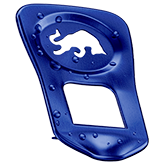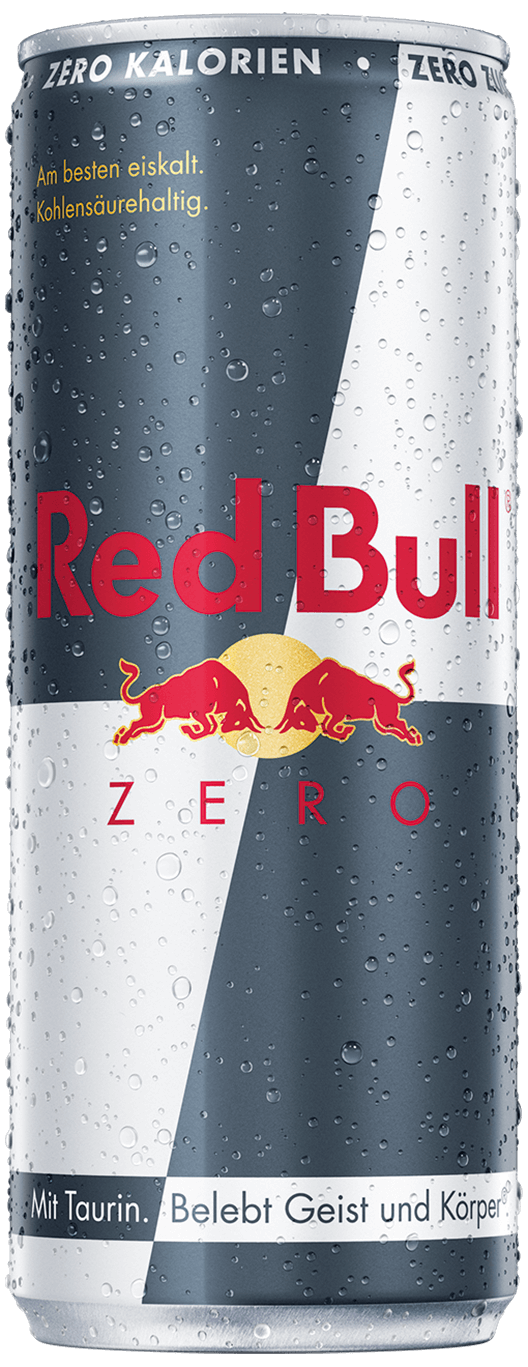Red Bull Zero ingredients
The special formula of Red Bull Energy Drink contains high quality ingredients.


caffeine
Caffeine was already known to ancient peoples. They obtained caffeine from natural sources such as tea, coffee, cocoa beans and the kola nut and valued its stimulating effects on the human body.
Caffeine occurs naturally in more than 60 plants and is found in many foods such as: B. Include coffee, tea and chocolate.
One of the main areas of action of caffeine in the human body is the stimulating effect on cognitive functions. Caffeine helps to improve concentration and increase alertness.
A 250 ml can of Red Bull Energy Drink contains 80 mg of caffeine.
B complex vitamins
Vitamins are essential micronutrients that help maintain normal body functions.
There are two types of vitamins: fat-soluble and water-soluble. Red Bull contains water-soluble vitamins. These are not stored in the human body as much as the fat-soluble ones. Instead, they circulate through the blood plasma and are excreted if they are not utilized by the body. Red Bull contains the water-soluble B complex vitamins niacin (vitamin B3), pantothenic acid (B5), vitamin B6 and vitamin B12.
These B complex vitamins contribute to normal energy metabolism such as: B. the formation and breakdown of carbohydrates, protein, as well as normal mental performance (pantothenic acid) and the reduction of tiredness and exhaustion (niacin, pantothenic acid, B6, B12).
In addition, B vitamins play a central role in the brain. They contribute to the normal functioning of the nervous system.
Taurine
Taurine is an amino acid that occurs naturally in the human body and in daily food. It is involved in a variety of biological processes.
Taurine is found e.g. B. in high concentrations in muscles, brain, heart and blood. A person weighing 70 kg has approximately 70 g of taurine distributed throughout the body. This means that a 70 kg person has 70 times more natural taurine in their body than is contained in a 250 ml can of Red Bull Energy Drink.
Taurine is also found in various foods such as mussels, fish and poultry and is often found in baby food.
Acesulfame K, sucralose and steviol glycosides
Acesulfame K, sucralose and steviol glycosides are among the most tested and used sugar substitutes.
Acesulfame K is a calorie-free sweetener. Acesulfame-K is used in more than a thousand different products worldwide, including foods and beverages such as chewing gum, dairy products, baked goods, etc.
Sucralose is a calorie-free sweetener that is made from sugar and tastes like sugar. Sucralose is produced synthetically. Sucralose is used in a variety of products including beverages, baked goods, desserts, dairy products, canned fruits and syrups.
Steviol glycosides are calorie-free sweeteners. Steviol glycosides are used in a number of products, especially beverages.
Acesulfame K, sucralose and steviol glycosides are the most tested and used sugar substitutes worldwide. Their safety when used as sweeteners has been proven by numerous scientific studies and confirmed by authorities around the world, e.g. B. by the Food and Drug Administration (FDA) of the US Department of Health and Human Services. The authorities base their recommendations on safety assessments by independent scientific committees such as: B. the European Food Safety Authority (EFSA), the Food Authority (FDA) in the USA or the Joint FAO/WHO Expert Committee on Food Additives (JECFA).
Water
Water is Red Bull’s main ingredient.
Water is Red Bull’s main ingredient. At our bottling facilities, we always ensure that our water sources meet the highest quality standards.
